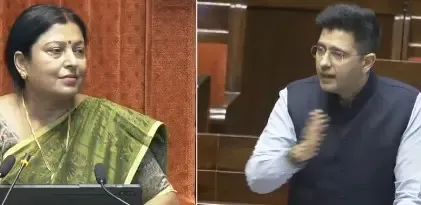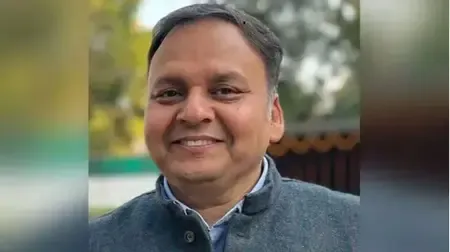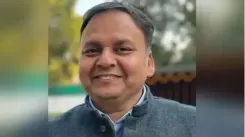Raghav Chadha Labels Banking Laws (Amendment) Bill as Insufficient Reform

Synopsis
Key Takeaways
- Chadha labels the Banking Laws Bill as inadequate.
- Focuses on procedural changes instead of core issues.
- Calls for caps on education and home loan interest rates.
- Highlights rising banking fraud and cybercrime.
- Advocates for better protections for senior citizens’ savings.
New Delhi, March 26 (NationPress) Aam Aadmi Party MP Raghav Chadha has openly criticized the ‘Banking Laws (Amendment) Bill, 2024’ during a discussion in the Rajya Sabha on Wednesday, calling it merely a ‘paper reform’ that neglects the genuine challenges faced by ordinary citizens.
Chadha contended that the bill focuses solely on procedural adjustments and does not address critical issues such as banking fraud, difficulties in loan recovery, and the increasing burden on bank personnel.
“Banks serve as more than just financial entities; they are the bedrock of democracy,” he stated.
Chadha emphasized, “From the savings of everyday individuals to loans for farmers, from financing youth education to providing pensions for the elderly -- banks influence every dimension of life. Yet, the surge in banking fraud and loan fraud is diminishing public confidence. Today, consumers are hesitant to trust banks.”
He highlighted that home loan interest rates in India fluctuate between 8.5 percent and 9 percent, while education loans can reach as high as 13 percent, complicating higher education pursuits for young individuals.
“Students are burdened with debt even before they begin their careers. Loans for MSMEs feature interest rates up to 11 percent, making growth difficult for small business owners,” he added.
Chadha advocated for the government to impose a cap on interest rates for education and home loans and to provide subsidized rates for first-time homebuyers. He further urged the RBI to foster competition by supporting smaller and digital banks to lower borrowing costs.
Expressing his concern for elderly citizens, he pointed out that fixed deposit rates hover around 6.5 percent while inflation is at 7 percent, threatening their life savings.
“A guaranteed minimum interest rate of 8 percent for senior citizens is essential to shield their savings from inflation,” he proposed.
On the subject of digital banking fraud, Chadha raised alarms about escalating cybercrime. “In the fiscal year 2024, India documented 36,075 cases of banking fraud, with digital payments and loan fraud being predominant. Cyber fraud alone resulted in a loss of Rs 2,054.6 crore,” he pointed out, citing official statistics.
He also noted that UPI fraud surged by 85 percent in 2024, further undermining public trust.
“The banking system acts as the primary support for the common man. However, its diminishing credibility and lack of transparency are instilling insecurity among people,” Chadha remarked, calling for extensive reforms to regain trust and protect citizens’ interests.









